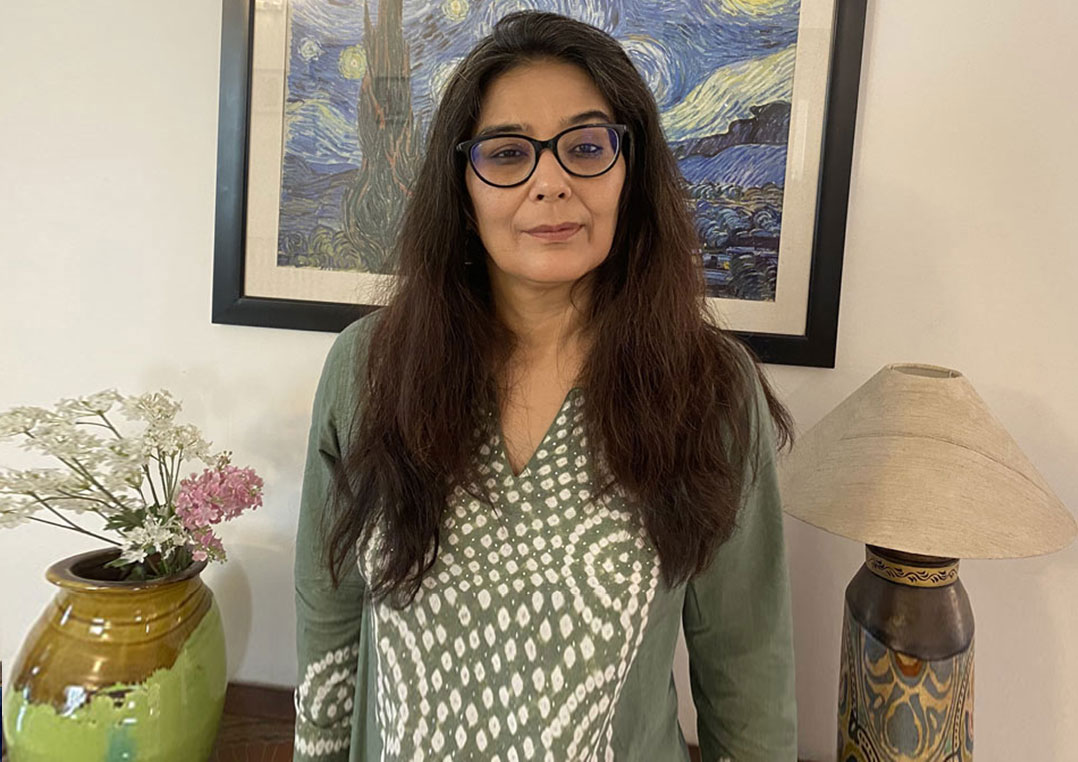Lessons from the Childhood- :
I hail from a middle class family with four
siblings. My father belonged to a very well-to-do family; however he incurred
huge losses when he started his own venture. He had to take up a job as an
accountant and my mother joined as a school teacher to meet the needs of our
family while my dad pursued higher education to get a better job. Watching my
parents toil day in and out showed me what it means to be resilient. My first
lesson of resilient leadership to handle setbacks, to lead in the most testing
of crisis came in from my parents.
25 years back, when I took the decision to
move to Mumbai to pursue my career and stay on my own, they totally supported
me. As a parent today, I realise it was not easy for them – but their complete
trust in me was admirable, during the times when staying alone was not as
popular in culture. The challenges of being my own in Mumbai, managing things
independently shaped me as an individual going forward.
Lastly, I believe, treating everyone with
respect is the greatest value. While we were growing up, our house was always
filled with family and friends from diverse backgrounds. I learnt the importance of nurturing
relationships from my mother and she seemed to learn something from everyone.
Idea behind the initiative ‘ReshamDor’- :
Our rich heritage of art and craft is based on
decades of ancestral wisdom and innate understanding of the ways in which
humans and nature should work together. I believe that the Indian handloom
industry, rooted in sustainability is well poised to drive the slow fashion
movement forward.
Our vision at ReshamDor is to revive dying
handloom clusters in India and establish artisans as custodians of art. We
believe that our weavers should be rewarded equitable benefit-sharing for use
of their knowledge and craft across the fashion industry as the world takes on
the sustainability movement forward!
As we embark on our journey to lead the
revival of Kharad rugs, a diminishing craft practised by only 2 families in
India, we are creating a model that honours the traditional creativity of the
artisans, by bringing them to the forefront, while we establish the brand identity
of Kharad and establish the right market linkages. We would like to make this sustainable through
investing in the community and empowering them to create change and encourage
younger generation to pursue the craft.
Incorporating knowledge of IT and block chain
technologies to vitalize handloom industry- :
I would like to combine my passion for
handloom with my experience in technology to come up withsimple technology
solutions to help the artisans and benefit this sector. As we progress further,
we would like to use disruptive technologies like Blockchain to help consumers
authenticate handmade products, preserve craft documentation and benefit
artisans through smart contracts.
The handloom industry- evolution, key
challenges and the future- :
There are multiple challenges that are
plaguing the handloom and craft industry for years -cheap machine replicas
eating into the market of handmade goods, low consumer awareness on the
creative investment and the elaborate process of making these products,
handloom and handicraft products sold by top brands without giving any due
credit to artisans, broken supply chain linkages.
The future of creative India lies in reviving
its past. We in India have flourished on
creative economy for generations. We need to restore and leverage our unique
creative advantages and build business models that revive and accelerate our
creative economy with traditional communities as collaborators. I believe that
the cooperative model applied by Amul needs to be applied in the handloom and
craft industry cluster by cluster. This will not only provide a strong sense of
identity to the future generations, but also bring back dignity to this
profession.
To make this possible, we need a new
generation of social entrepreneurs who have an affinity and passion towards art
and handlooms to craft the right strategy to build assured market globally, fix
broken linkages across the supply chain and establish the right brand identity
of our crafts globally.
Turning obstacles in life into stepping stones- :
My biggest challenge was to give up a
lucrative job, a well established career in technology to move into an area
where I had no formal education to pursue my passion of empowering handloom
weavers.
Another thing I learnt was to deal with
rejection and not taking it personally. As a small business, we reached out to
multiple people for establishing collaborations and we got tons of no’s, not
interested and a cold shoulder. One tactic that worked for me was to consider a
No as delayed yes. This really forced me to think about what can be done to
make it work. We recently had our first success where continued persistence and
to learn quickly from failures have helped us build key collaborations to move
forward.
Mentors in life- :
My greatest mentor in life has been my father. He was a man of principle, and courage, and always followed his heart. As a family, we had our struggles however his large vision and positive attitude to make things happen in the most adverse times helped us sail through. Long before the Alchemist came in I have seen this quote work with him in life “When you want something, the universe conspires to make it happen.” He taught me the life lesson to dream big, of having the courage to pursue the path I want, to take calculated risks and instilled the confidence to pursue my vision.
To continue reading timeless literary works with powerful inspiring stories and people, check out these top passion stories.

